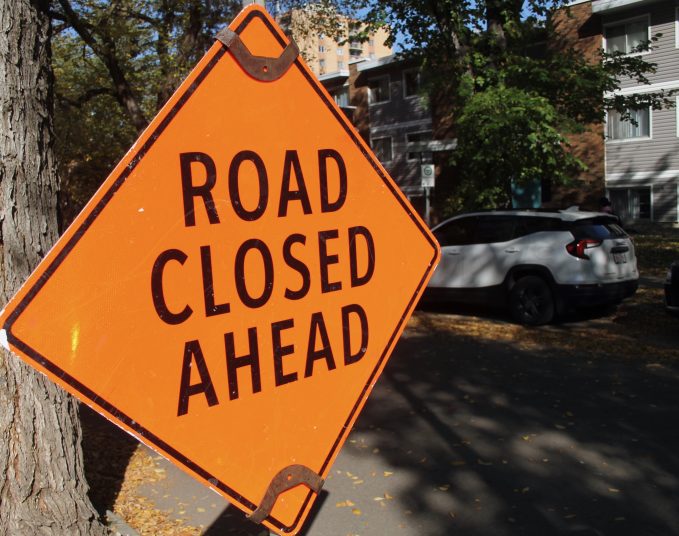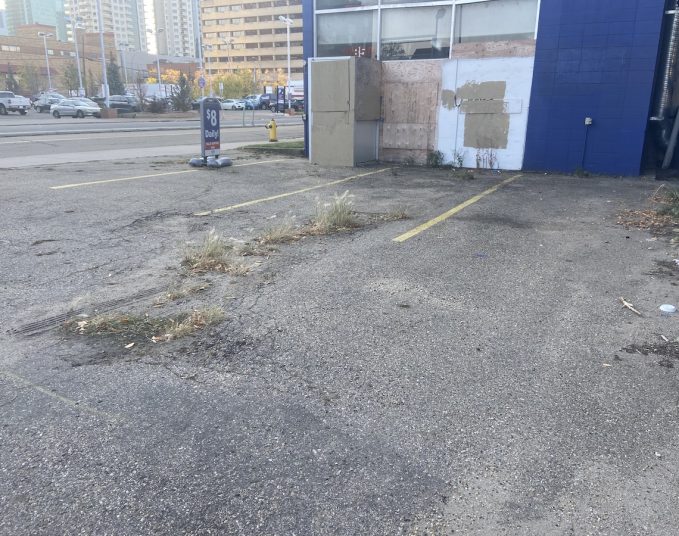Smith not Sohi. That’s who’s to blame for an uptick in crime and disorder in Edmonton’s Old Strathcona according to Papastew Coun. Michael Janz.
The statement comes in reference to a letter writing campaign launched in his ward by the Old Strathcona Business Association (OSBA). The campaign is urging the municipal and provincial governments to do more to address growing concern over crime and vandalism.
The campaign takes aim at the Edmonton Public Safety and Community Response Task Force (EPSCRTF) — a multi-jurisdictional effort between the provincial and municipal governments. The task force was created in December of 2022 with the purpose of addressing social concerns and safety.
Janz says that mission has failed to materialize.
“It’s about time the inert provincial task force on public safety steps up and actually comes forward with solutions,” Janz said. “It was created, what, eight months ago? And we’ve seen little to no action thus far.”
The task force deployed additional law enforcement to downtown this past February which remains in place until the end of the year.
Arthur Green, press secretary for public safety minister Mike Ellis, issued a statement saying the task force is continuing to “address crime, homelessness, and addiction with the aim of improving public safety throughout Edmonton.”
But Janz feels those types of actions don’t address the root causes and may actually be fuelling the issue in other neighbourhoods.
“If the province doesn’t address the root causes, and just sends more police, all it’s going to do is push those folks … into another neighbourhood,” he said.
Cherie Klassen, the executive director of the OSBA, says grievances among the neighbourhood’s businesses have been growing for some time and more advocacy is needed to ensure action is taken.
“This comes after about a year of us hearing heightened concern from business owners,” Klassen said. “Through our member surveys, 100 per cent of responses list public safety as the number-one concern.”
The OSBA is calling for increased policing in the area — from five days per week to seven — and the expansion of a municipal grant that assists businesses in repairing broken windows up to $2,500.
“Last summer we saw a huge spree between summer and fall. Something like 30 windows were smashed,” Klassen said. “These are huge storefront windows that cost thousands to repair.”
The campaign is also calling for the development of an outreach team that can act as a liaison between businesses and marginalized people in the community.
“Business improvement areas across North America have these and they can do anything from working with business owners on de-escalation to being on the street interacting with marginalized folks … because most of the time, these are not criminal issues. It’s social disorder and they need someone to direct them to the right resources.” Klassen said.
There have been other outreach teams in the area. The Mustard Seed has, in the past, operated a street outreach program and Bear Claw Beaver Hills House still patrols the area.
Judith Gale, leader with Bear Claw’s Edmonton patrol, agrees more needs to be done, but says policing and community patrols aren’t enough to stabilize what’s happening.
“This reaches far beyond our community and is an issue with the government,” she said. “We have no adequate housing … they’re not throwing any money at mental health, which we need desperately.”
If funding is the issue, then that responsibility lies with the province, according to Janz, who says Edmonton’s smaller operating budget makes meaningfully addressing the problem near impossible without provincial support.
“Encampment complaints have gone up 1,000 per cent. Why is that? It’s not because the City closed shelters. It’s not because the City cut funding or took away mental-health supports,” Janz said. “The City can offer 100 new windows, new garbage pickup, more street sweeping, but those are not even band-aids on a problem that’s going to get worse until the province actually steps in and does something.”
“The costs of us providing 24/7 shelter spaces and housing is enormous compared to the province. They have a $14-billion surplus right now,” he added.
But while the City and the province argue about who should cover what and how, Klassen and the businesses on Whyte Avenue are worried about the future of one of the city’s most vibrant neighbourhoods.
“Our concern is that we’re hearing businesses saying they’re close to (leaving) if things don’t improve. These are folks coming out of a massive economic recession and debt and they just don’t have the capacity. It won’t take much to push a business to where they can’t survive.”
Savvy AF. Blunt AF. Edmonton AF.




